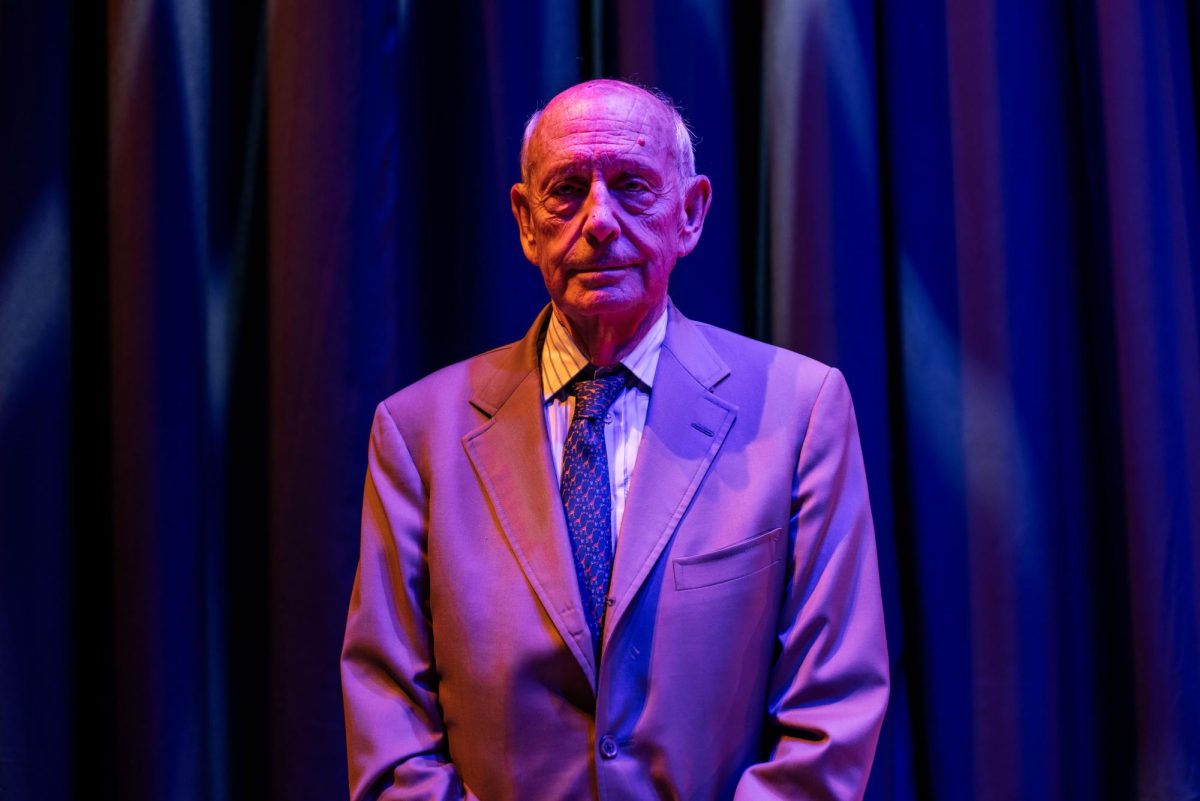Former Supreme Court Justice Stephen Breyer spoke about his experience working for Sen. Edward “Ted” Kennedy (D-MA) and navigating political division in Lisner Auditorium on Thursday.
In his conversation with attorney Kenneth Feinberg, another former staffer for Kennedy, Breyer said his interest in the Kennedy family motivated him to leave his job as a Harvard Law professor to become a senate staffer. The event, hosted by GW Law and Associate Dean for Public Interest and Public Service Alan Morrison, was the third installment of a five-part series charting the path of Breyer’s career.
“Our generation is the Kennedy generation,” Breyer said. “Every one of us knows where he was when Jack Kennedy was assassinated.”
Breyer said Kennedy hired him because of his extensive knowledge on the topic of airline deregulation and administrative law, which he had amassed during his time at Harvard. Breyer’s work on Kennedy’s staff contributed to disseminating the evidence that led to the abolishment of the Civil Aeronautics Board, a federal agency that regulated aviation services, making air-travel more financially accessible, according to Airlines for America.
Breyer said this achievement only came because he focused on a single issue rather than several.
“You start to accomplish something, I don’t care what it is, it’s gonna work for people and make them better off,” Breyer said. “And if you focus on one thing, and really understand the subject, you’re more likely to get somewhere.”
Breyer added that staying quiet in conversation was the key to his and Kennedy’s legislative success.
“Don’t do all the talk,” Breyer said. “You just say what you think and get them to talk as much as they will, and if they talk enough, you will find that sooner or later, they’ll say something you really agree with. And as soon as they say something you actually agree with you on this issue, you say ‘That’s pretty good, let’s see if we can work with you.’”
Breyer, who reprised his professorship at Harvard Law School in July 2022, said he encourages his students today to “listen” and work to come to a compromise, in a fashion similar to the Senate. He said the strategy is a “fairly good way of proceeding” in debate.
Breyer said Kennedy believed Republicans and Democrats are alike because they both want to help people. He said the divide between the parties should only go as far as political debate.
“Politics is one thing, and human relations is another,” Breyer said.
Breyer said a career in public service is worthwhile work and that he was never bothered by the low-paying jobs he worked for much of his career. He said working in his field of law is about the desire to help people, rather than financial reward.
“Everybody has a heart but not everybody has that determination to get through law school, and you have both,” Breyer said. “And when you have both, put those two things together, it’s a wonderful career.”
Breyer said the parties “have to work together” regardless of increased political polarization in the United States.
“We’re going to try to have a world where there is basic human rights protection, a rule of law, some free trade and working together with other countries,” Breyer said. “By doing that, we will create a world that is more desirable. That’s what we want.”
The Hatchet interviewed Breyer after the event, where he said law students must keep the country “habitable.” Breyer said while he can provide insight on which of his career experiences were worthwhile, it’s up to students to decide what to take away from the talk.
“I can tell them what I’ve done and, reflecting on it, what I found more valuable, less valuable,” Breyer said. “They have to be the ones to figure it out. I can’t figure out your life.”
When asked if he regrets any of his career decisions, Breyer said he would have preferred to spend more time teaching.
“I was coming down and working in Washington for a while not spending 100 percent of my time teaching,” Breyer said.
When asked if he thought Justice Clarence Thomas made the right choice in stepping down from his role as a GW Law lecturer last summer, Breyer said Thomas is a “friend” and that he has “no idea” if Thomas made the correct decision.
The next conversation in the five-part series will focus on Justice Breyer’s time in the First Circuit Court and the Sentencing Commission.
Cade McAllister contributed reporting.





